
CDC warns about Candida auris spreading if health care workers don't take preventative measures in an interview with Infection Control Today.

Tori Whitacre Martonicz, MA, is the lead editor of Infection Control Today. She has been a writer and editor for over 30 years and has an MA and BA in English Composition/Literature from the University of Akron in Akron, OH. She lives in Ohio with her husband, Eric; son, Drake; 2 tiny dogs, Selena Brigid Sophia and Doctor Danger Dog; and a big black cat, Freya. She loves reading, writing, gardening, and spending time with her loved ones.
Contact her through her email: tmartonicz@mjhlifesciences.com.

CDC warns about Candida auris spreading if health care workers don't take preventative measures in an interview with Infection Control Today.

To prevent the spread of C auris, the CDC recommends that IPs and environmental hygienists play a critical role. In this interview, the medical scientists clarify what specific actions they should take.

To ensure the accuracy of the information concerning Candida auris, Infection Control Today has spoken with 2 medical scientists from the CDC.

Findings provide the first published evidence of the relationship between standard precaution adherence and the safety of health care workers and patients.

A study published in AJIC describes how one health care system implanted an initiative by their IPs to prevent the health care-acquired infections when COVID-19 loomed over their work.

In the infections the investigators examined, about 60% of the bacteria that cause these infections did have a carbapenemase gene. Did they find a mortality difference in those infections which did and didn’t?

How is infection prevention different in dental offices from other health care facilities? Experts explain.
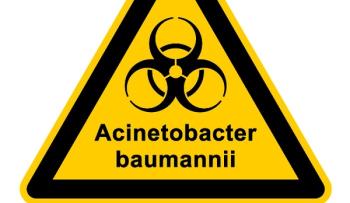
Sulbactam-durlobactam is under priority review (PDUFA; May 29, 2023).

Since the Marburg virus is deadly, what would it be like to work with it in a laboratory setting? And what can be done to protect those who work with patients with Marburg?

Surgical site infections (SSIs) are not getting documented as often as they occur, and the financial toll could be staggering. Two experts presented about what can be done to reduce SSIs on this topic and then spoke with Infection Control Today at the Association for PeriOperative Nurses (AORN) held in San Antonio, Texas, on April 1-4, 2023.

At the European Congress of Clinical Microbiology & Infectious Diseases (ECCMID), 2 posters about the COVID-19 antiviral, ensitrelvir, will be presented. ICT found out more about what they say.

In an education session at the 2023 Association of the PeriOperative Nurses (AORN), Sheri Voss, MS, RN, CNOR (Emeritus), taught attendees about factors affecting operational performance in the operating room and what can be done about them.

Since The Netherlands has the most rigorous standards for operating room air quality in the world, it was the perfect place to test if the air quality concept created by Maximuse fulfilled the governmental requirement. These results were presented the 2023 AORN conference.

One focus of the 2023 Association of PeriOperative Nurses (AORN) 2023 Conference in San Antonio, Texas, was ambulatory health care, and ICT spoke to presenters on the importance of emergency preparedness drills.

Amber Wood MSN, RN, CNOR, CIC, FAPIC, talks with ICT about her 2 presentations at the 2023 AORN annual conference, and how important the conference is to her and everyone who attended.

Ambulatory surgical centers (ASC) were a main topic at the AORN 2023 Conference, and Erica Smith, MBA, PhD candidate, tells ICT about her presentation on the importance of infection control and prevention in the ASC.

Vangie Dennis, MSN, RN, CNOR, CMLSO, president of the Association of PeriOperative Nurses (AORN), discusses the goals she and the Board of Directors reached during her tenure, the future of AORN, and the annual conference in San Antonio, Texas.

Joshua Rhein, MD, assistant professor of medicine at the University of Minnesota, discusses whether obesity affects vaccine response and what can be done.

Reducing unnecessary and inappropriate urine cultures through EHR-focused interventions would be valuable in health care systems that have limited resources.
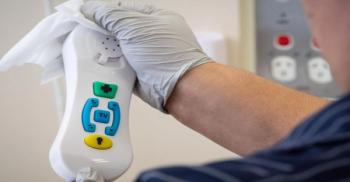
Doe Kley, MPH, RN, CIC, LTC-CIP, T-CHEST speaks with ICT® on narrowing down how many disinfecting products their facilities should have and the education that they need about the cleaners and checking their competency in using those products.

The HAC and Hospital VBP penalties were suspended during the COVID-19 pandemic but are now back in place. Are they forcing hospitals to rethink/reestablish previous practices, and what is the impact?

Recently, an outbreak of Marburg virus disease occurred in Equatorial Guinea. Infection Control Today® learned more about this rare but severe and often fatal disease and what is being done to combat it.

Is the global community in danger of a fungal pandemic, as portrayed in the series The Last of Us? Infection Control Today® finds out.

With all the misinformation and confusion about what The Joint Commission (TJC) does and doesn't do, ICT went to TJC to find out. Listen to the detailed interview to find out what health care workers need to know.
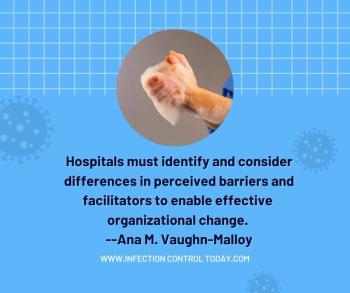
A new study focuses on insights that can be used to create interventions for better hand hygiene adherence among all medical professionals.

Doe Kley, MPH, RN, CIC, LTC-CIP, T-CHEST, continues her interview with ICT about why IPs' involvement with their facility's cleaning and disinfection programs is so critical.
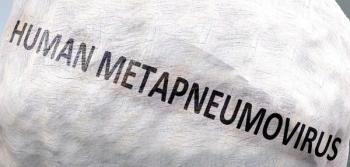
Human Metapneumovirus (HMPV) is not as well-known as its relative, respiratory syncytial virus (RSV), so here is the information that infection control and prevention personnel need to know about this respiratory virus.
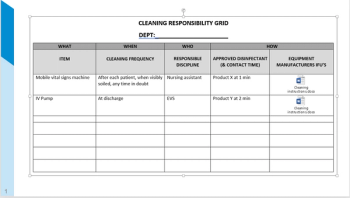
Doe Kley, MPH, RN, CIC, LTC-CIP, T-CHEST, does a deep dive into what the key priorities infection preventionists and environmental hygienists should focus on in 2023. This is the first of 3 installments.

What do infection prevention and control personnel need to know about preparing for future pandemics? Maureen Hennessey, PhD, CPCC, CPHQ, SVP, and Cynthia Miller, MD, MPH, discuss their thoughts with ICT.

The Conference on Retroviruses and Opportunistic Infections 2023 has research in COVID-19, mpox, hepatitis, and other viral infections, plus networking, and even Anthony Fauci, MD, speaking on his legacy.